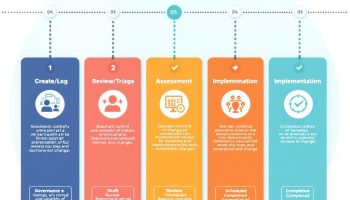![]()
Time Tracking Tools for Developers: A Comprehensive Overview
Time tracking tools for developers offer automated systems that monitor coding activities, integrate with development environments, and generate detailed productivity reports. These specialized tools feature Git repository integration, project management connectivity, and customizable dashboards that transform raw time data into actionable insights for development teams.
Strategic Business Value of Developer Time Tracking
Time tracking tools for developers provide significant ROI for enterprises by improving resource allocation, increasing project estimation accuracy, and ensuring transparent client billing. They automatically capture development hours across projects, eliminating administrative overhead while giving management essential visibility into team productivity patterns. Your organization can identify bottlenecks, optimize workflows, and make data-driven decisions about developer resources with these time tracking tools for developers. This accelerates delivery timelines and maximizes the efficiency of technical talent.
The right time tracking solution helps you balance productivity with accurate reporting. You’ll get precise data about how your development team spends their hours, which tasks consume the most resources, and where efficiencies can be gained. This information proves invaluable when planning future projects or justifying additional resources.
Implementing effective time tracking doesn’t need to feel intrusive. Modern tools integrate seamlessly with existing development workflows, capturing data in the background while developers focus on their code. The best solutions feel invisible to users while providing powerful analytics capabilities to team leads and managers.
Unlocking Productivity: 7 Essential Time Tracking Tools for Developers
In the fast-paced world of software development, effective time management is crucial for productivity and project success. The following list outlines seven essential time tracking tools designed specifically for developers, each equipped with features that enhance workflow efficiency, accuracy, and collaboration.
These tools can automate time logging, integrate with existing development environments, and offer insightful analytics that help teams optimize their coding practices. By utilizing these time tracking solutions, developers can focus on writing code rather than worrying about managing their time, ultimately leading to better project outcomes and increased profitability.
Explore the key features of each tool to find the right fit for your development team’s needs.
1. Automated Time Detection for Efficient Tracking
Modern time tracking tools for developers have revolutionized how coding time is captured. These advanced tools integrate directly with your IDE and development environments, automatically detecting when you’re working without requiring manual input. The best time tracking tools for developers can intelligently recognize when you switch between projects or coding sessions, accurately logging your activities throughout the day. This automation eliminates the frustration of manually logging hours and ensures you maintain precise records for billing and productivity analysis. Many developers find that project collaboration becomes smoother when everyone’s time is tracked accurately without disrupting workflow.
Key benefits include:
- Reduced administrative overhead
- Increased accuracy in time reporting
- Minimal disruption to coding focus
- Improved billing precision for client work
2. Git Repository Integration for Effective Time Tracking
Modern time tracking tools for developers offer seamless integration with popular version control platforms. With direct synchronization capabilities, these tools connect to GitHub, GitLab, and Bitbucket repositories, eliminating the need for manual time entry. This integration allows the time tracking system to automatically monitor commit activities and branch operations.
The most advanced developer time tracking tools correlate coding sessions with repository actions, creating a comprehensive timeline of your development work. This feature provides several key benefits:
- Automatic attribution of time to specific projects based on repository activity
- Detailed breakdown of time spent on different branches and features
- Historical record linking time entries to specific commits for better project assurance and accountability
By connecting your time tracking with version control, you gain valuable insights into how long different code changes take, helping improve project estimation accuracy for future work.
Expert Insight: Integrating your time tracking tool with Git repositories streamlines project management by automating time entry through commit activities. This enhances accountability and provides insights into time spent on branches and features, ultimately improving project estimation accuracy. Leverage this integration for more efficient and data-driven development practices.
3. Project Management Integration for Time Tracking Tools
Effective time tracking tools for developers must integrate seamlessly with your existing project management systems. When selecting time tracking tools for developers, look for options that connect directly with popular platforms like Jira, Trello, and Asana without requiring manual data transfers.
These integrations provide several key benefits:
- Automatic task status updates whenever developers log time entries
- Real-time synchronization of work progress across all connected systems
- Simplified workflow with no need to switch between multiple applications
- Improved project collaboration between team members
The best time tracking solutions allow you to create time entries directly from your project management tasks. This capability ensures accurate billing, helps identify bottlenecks in your development process, and provides transparency for stakeholders monitoring project timelines. When developers can track time without leaving their workflow, you’ll see higher adoption rates and more consistent data for making resource allocation decisions.
Expert Insight: Choose time tracking tools that integrate directly with your project management systems, like Jira or Trello, to streamline workflows. This integration enables automatic updates, real-time synchronization, and accurate billing while minimizing app-switching. Higher adoption rates lead to better data consistency, enhancing both project efficiency and transparency.
4. Customizable Reporting Dashboard for Time Tracking Tools
Effective time tracking tools for developers must include robust reporting capabilities that transform raw data into actionable insights. When you implement advanced time tracking tools for your development team, customizable dashboards become your central command center for productivity analysis.
These dashboards provide visual breakdowns of time spent across different projects, programming languages, and team members. You can quickly identify which tasks consume most of your developers’ time and where efficiency improvements might be possible. The strategic dashboard features allow you to filter and segment data according to your specific management needs.
Export capabilities are particularly valuable for:
- Client billing documentation with precise time allocation
- Team performance reviews with productivity metrics
- Sprint planning with historical time estimates
- Resource allocation based on actual development hours
Most sophisticated time tracking tools for developers also include burndown charts that visualize project progress against deadlines. These analytics help you identify productivity patterns and potential bottlenecks before they impact project communication and delivery timelines. By customizing these reports to highlight your most critical metrics, you create a powerful tool for continuous improvement in your development workflow.
Expert Insight: Utilize customizable reporting dashboards in time tracking tools to transform raw data into actionable insights. Focus on key metrics such as project time allocation and team performance, enabling you to identify bottlenecks and optimize efficiency. Regularly adjust reports to enhance your development workflow and drive continuous improvement.
5. Cross-Device Synchronization for Seamless Time Tracking
Modern time tracking tools for developers must offer seamless synchronization across multiple devices. You need flexibility to track your coding hours whether you’re at your desk, in a meeting, or working remotely. Quality time tracking tools provide real-time data synchronization between your desktop workstation, laptop, and mobile devices, ensuring no billable time slips through the cracks.
When working in areas with limited connectivity, offline tracking capabilities become essential. The best developer time tracking solutions continue monitoring your work even without an internet connection, automatically uploading your data once connectivity is restored. This ensures continuous tracking regardless of your working environment or network status.
Browser extensions enhance the functionality of these tools by allowing you to:
- Track time spent researching solutions on Stack Overflow
- Monitor web development tasks in real-time
- Integrate with web-based IDEs and development environments
- Log time for online collaboration sessions
For teams collaborating on complex projects, synchronized time tracking provides valuable insights into resource allocation and helps identify potential bottlenecks in your development workflow.
Expert Insight: Leverage cross-device synchronization in your time tracking tools to monitor coding hours seamlessly, whether at your desk or on the go. Ensure offline tracking capabilities for uninterrupted monitoring, and integrate browser extensions to enhance functionality. This approach provides valuable insights for effective resource allocation and workflow optimization in team projects.
6. Smart Notification Systems for Efficient Time Tracking
Effective time tracking tools for developers should include intelligent notification systems that promote healthy work habits while maximizing productivity. These notification features help you maintain awareness of your time usage without disrupting your workflow. Modern time tracking tools offer customizable alert systems that can transform how you manage your development hours.
You can configure alerts based on your personal work patterns, with options including:
- Extended coding session warnings when you’ve been working continuously for predetermined periods
- Break reminders that adapt to your specific work habits and prevent burnout
- Focus time notifications that minimize interruptions during deep work sessions
- Daily summaries showing your productive hours and project distribution
- Weekly productivity reports highlighting trends in your time usage
These smart notifications integrate with your project collaboration workflow, ensuring your time tracking tool becomes a productivity partner rather than just a monitoring system. The best developer time tracking solutions allow you to customize notification frequency and delivery methods to match your preferences.
7. Data Security and Privacy Controls for Time Tracking Tools
When implementing time tracking tools for developers in your organization, data security should be a top priority. Modern time tracking tools offer robust encryption protocols that safeguard sensitive development data from unauthorized access. End-to-end encryption ensures that your developers’ productivity metrics and project time allocations remain confidential throughout transmission and storage.
You can customize data retention policies to align with your organization’s compliance requirements, determining how long information is stored before automatic deletion. This feature is particularly valuable for maintaining security and compliance standards across development teams.
Most premium time tracking tools now include built-in features to help your development team maintain:
- GDPR compliance for European operations
- CCPA compliance for California-based developers
- Role-based access controls to limit data visibility
- Audit logging to monitor system access and changes
With proper security controls, your time tracking implementation can support effective project collaboration without compromising sensitive development data.

Time Tracking Tools for Developers
Time tracking tools for developers are sophisticated software solutions that automate the monitoring and analysis of coding time while integrating seamlessly with development environments and project management systems. These specialized tools offer features like automated time detection, Git repository integration, and customizable reporting dashboards to enhance productivity and streamline workflow for development teams.
Importance of Time Tracking Tools
Time tracking tools for developers are essential for enterprise environments where accurate resource allocation, project billing, and productivity optimization directly impact the bottom line. By providing real-time insights into how development hours are spent, these tools enable organizations to:
- Identify bottlenecks
- Improve estimation accuracy
- Ensure regulatory compliance
- Make data-driven decisions about team capacity and project timelines
Ultimately, the use of these tools leads to more efficient operations and higher profitability.






